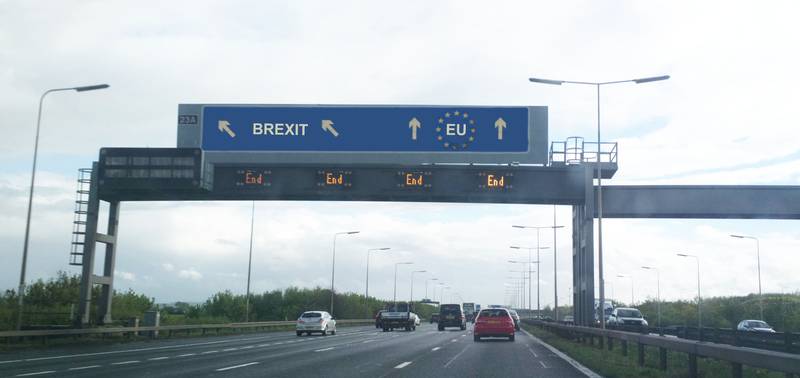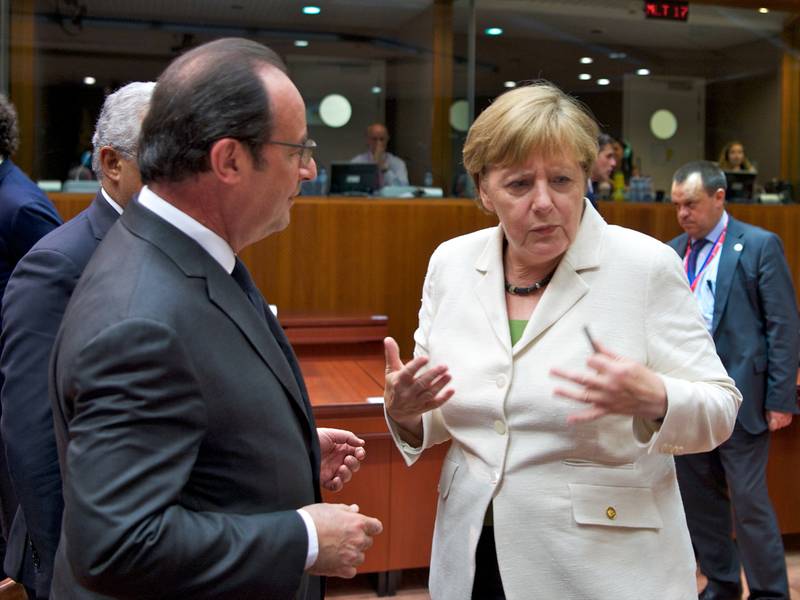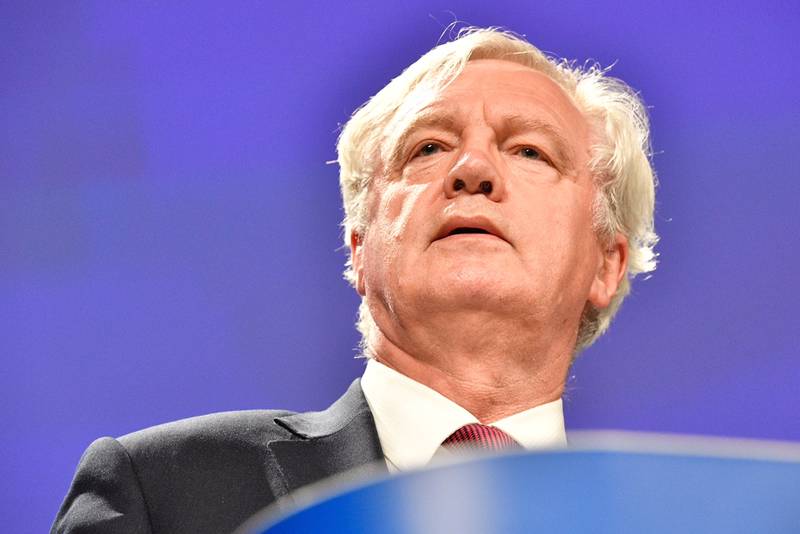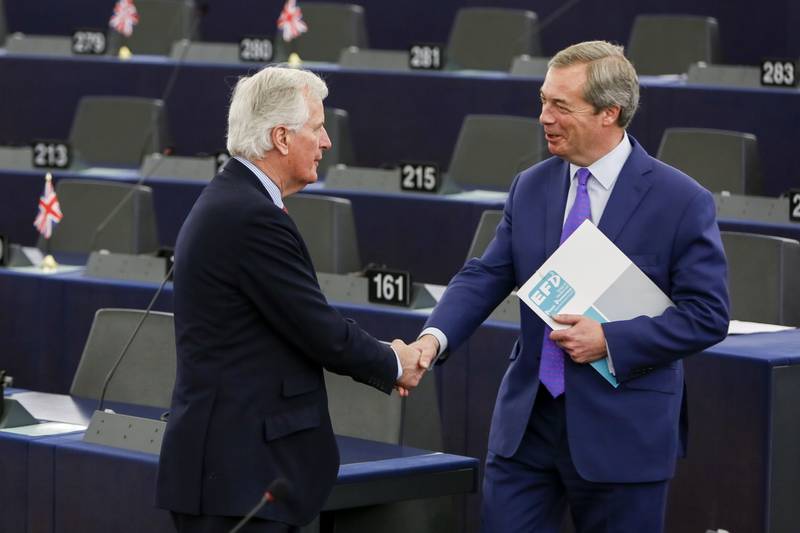Did Brexit Bring a Long-Awaited Restart of Pro-Europeanism?*
Adelina Marini, July 26, 2016
 The first days and weeks following the European referendum in Great Britain of June 23 tempt us to give a positive answer to this question after mass confessions were made for lies and manipulations during the campaign and after the start of reactions of regret and taking up initiatives for a re-run of the referendum. The leaders of the other 27 member states (all from the mainstream political spectrum) did not miss the chance of using the initial severe economic and financial impact of the referendum outcome on Great Britain in order to show what euroscepticism leads to. Even those coming from the camp of moderate eurosceptics, like Dutch Prime Minister Mark Rutte, sent out a clear message of “See what happens when...”. At this stage, economic data shows that the blow is heavier on the United Kingdom than on the European Union. Politically negative consequences are also more for the Kingdom because of the intricate balance, which the new government in London needs to achieve in order to keep the British union intact.
The first days and weeks following the European referendum in Great Britain of June 23 tempt us to give a positive answer to this question after mass confessions were made for lies and manipulations during the campaign and after the start of reactions of regret and taking up initiatives for a re-run of the referendum. The leaders of the other 27 member states (all from the mainstream political spectrum) did not miss the chance of using the initial severe economic and financial impact of the referendum outcome on Great Britain in order to show what euroscepticism leads to. Even those coming from the camp of moderate eurosceptics, like Dutch Prime Minister Mark Rutte, sent out a clear message of “See what happens when...”. At this stage, economic data shows that the blow is heavier on the United Kingdom than on the European Union. Politically negative consequences are also more for the Kingdom because of the intricate balance, which the new government in London needs to achieve in order to keep the British union intact.
This is, however merely the surface. If we look deeper we will see that the answer to the aforementioned question is not unequivocal. As the IMF, EC, and ECB admitted last week, it is still impossible to make credible economic forecasts, for the variables are too many. It is unknown when (or even if) Great Britain will activate Article 50 of the Treaty on the EU (TEU), which will start negotiations. There is also no clarity on what kind of a deal will be struck with the United Kingdom, or how long will negotiations last. The three institutions are working along three scenarios – from the worst case to the mildest, but firmly state that their forecasts are completely approximate. So far, markets have reacted well, which is interpreted by ECB boss Mario Draghi and the EC’s economic team as proof that what has been done over the last 6-7 years after the crisis in the euro area has secured a smooth landing after the Brexit. There are enough arguments supporting this thesis, but the banking problem in Italy has not yet unfolded its full potential.
Purely on a political note it is also too early to say what the outcome of the Brexit will be, for the first reactions in the EU were not an explosion of pro-Europeanism, but rather a demonstration of Euro-realism. Member states are well aware that they remain together on this continent and are so inter-linked that any separation would have devastating consequences. Anyway, Great Britain is the least-integrated member state. The rest are either tied within the euro area, where integration is the strongest, or bound by Schengen, the future of which remains unclear until a lasting solution to the migrant crisis is found, or they are linked by geopolitical fears. So the stakes for the 27 remaining together remain quite high. In no way does this mean pro-Europeanism in its possibly already outdated sense – more integration and going towards a United States of Europe, as it was drafted by the founding fathers of the Union.
The Brexit showed that the EU is not welcome in some areas and there were quite a few member states demonstrating support for British suggestions for a looser, more flexible Union. Even the most stubborn of European politicians started to mature to the idea that the EU should step back from some areas, which have so far been feeding fuel to Eurosceptics. A survey from April of this year of Eurobarometer for the European Parliament with the sole question of “Would you like the EU to intervene less than at present or more than at present for the following policy areas?” shows quite clearly what the attitudes were before the Brexit. The champion of more Europe is the fight against terrorism. Support for more EU intervention in dealing with this problem is over 75% in all member states, including Great Britain. Less interference is expected of the EU in healthcare, migration, gender equality, democracy, borders, and foreign policy.
 More Europe is requested in dealing with unemployment, which remained one of the most stubborn legacies of the debt crisis. Exactly how much have attitudes changed after the Brexit remains unclear, for there is no large-scale survey of attitudes after June 23. It is quite safe to assume though that Eurobarometer data from April of this year will hardly change significantly, due to the same reasons that make economic forecasts difficult – what is seen at the moment is not what will be there after and if Great Britain left.
More Europe is requested in dealing with unemployment, which remained one of the most stubborn legacies of the debt crisis. Exactly how much have attitudes changed after the Brexit remains unclear, for there is no large-scale survey of attitudes after June 23. It is quite safe to assume though that Eurobarometer data from April of this year will hardly change significantly, due to the same reasons that make economic forecasts difficult – what is seen at the moment is not what will be there after and if Great Britain left.
The way forward will be discussed in detail at the special summit in Bratislava on September 16. The thing that can be predicted fairly safely from now is that euro area integration will continue, albeit at a slower rate, provided the political and economic situation remains unchanged. If, on the other hand, there are new economic shocks because of the Italian banking problem or any other factor, it is possible that the victory of pro-European forces will be erased and confidence in Euroscepticism being able to propose local solutions to global problems will be brought back to life. The reason we cannot expect a large boom of pro-Europeanism is the ever growing mistrust among member states, bred by the failures of different governments in implementing at the national level what has been agreed on the European level. This is the most erosive factor to pro-Europeanism. It is even mightier than eurosceptic powers, a part of which are simple populists, but others have strong argumentation in favour of pulling the handbrake on integration.
Translated by Stanimir Stoev
*This article has originally appeared in Bulgarian language on Terminal 3 news site
 David Davis | © European Commission
David Davis | © European Commission Angela Merkel | © Council of the EU
Angela Merkel | © Council of the EU Michel Barnier, Nigel Farage | © European Parliament
Michel Barnier, Nigel Farage | © European Parliament